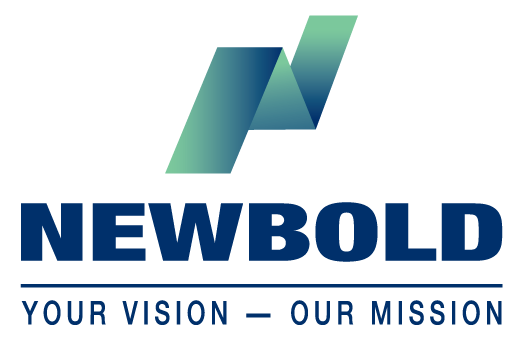The Path to Mentorship
Part of NEWBOLD’s “make a connection • make a difference” series on mentorship.
If you were lucky enough to have a mentor as a young person, you know the value of this relationship. If you were not, you may be surprised to find the mentor often gets as much from the effort as the mentee. With a thoughtful approach and a commitment to the process, you truly can make a difference by making a connection.
Consider the Source
Find out if your employer has a formal mentoring program. These may be described as coaching opportunities, development paths or leadership programs. If you have an HR department, start there. If not, simply talk with your manager about what mentoring options might be available within your organization.
Looking Beyond Your Office
Community colleges, technical schools and trade schools are typically open to connecting local professionals with students for mentorship opportunities. Don’t underestimate the impact you can have on a young person in school and considering what profession or career to pursue. YOUR skills and perspective are valuable, no matter what path a student is on. You may not know a thing about CAD design, but your experience job searching, and interviewing is invaluable. You may be an accountant working with a student who is studying to be a paralegal; your insights on organizational tools, interpersonal skills and client service will be beneficial in ways you may not have considered.
Be Civic-Minded
There are, of course, organizations in your community that make mentoring the basis of their mission. Boys & Girls Clubs of America, Future Business Leaders of America and Odyssey of the Mind are all excellent options if you are looking to contribute your life skills to young people who are already thinking about their professional futures.
Prepare Yourself
Take a close look at your own experiences and consider what skills you’ve acquired that will be useful to share with others coming up in the business world. Think beyond the technicalities of your job, and take a broad look at what it means to be “successful” in your professional life. This is just the tip of the iceberg when it comes to life skills a mentee will benefit from – and, let’s face it, you have these on lock:
- Organizational prowess
- Negotiating compensation
- Managing expectations
- Listening
- Proving value to your organization
- Maintaining work-life balance
- Navigating difficult co-workers
- Managing up
- Listening (it’s worth putting on the list twice)
Take a Walk Down Memory Lane
But only long enough to remember what you were like earlier in your career, or when you were just starting off. What’s important to a young professional or new hire is not necessarily what’s important to a seasoned veteran of the work world. Put yourself in their shoes and listen closely to their hopes and fears.
Read Between the Lines
Sometimes a mentor’s responsibility lies in listening to what a mentee is NOT saying. Did you have any idea what career paths were available to you when you were in high school, or even college? Chances are good you had no idea that a physician’s assistant, financial manager, speech pathologist and mortgage professional would be considered top jobs in 2020! Find out what interests your mentee, but also introduce them to careers they may not have considered or even heard of.
NEWBOLD has more than 300 mortgage and staffing professionals in the field. If you’re looking for a mentor for yourself or another young professional, reach out and let’s talk: [email protected]
